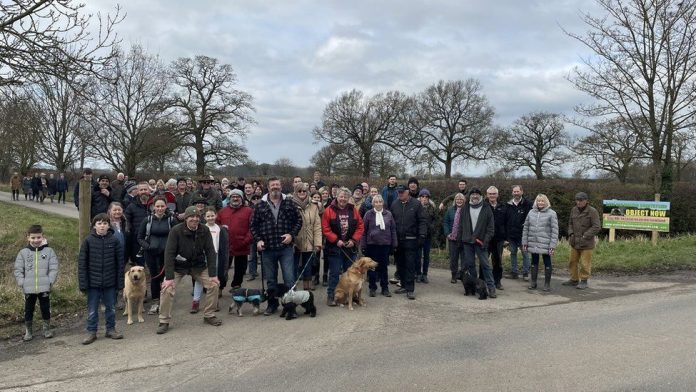Plans for a large solar farm in North Yorkshire have been rejected following hundreds of objections.
If given the go-ahead, the development, near Malton, would have provided energy for 8,660 homes, Harmony Energy said.
Councillors had been expected to approve the scheme, but instead they recommended Levelling Up Secretary Michael Gove dismiss the plans.
The need for food production must not be ignored in the pursuit of green power, they urged.
More than 500 people had opposed the scheme, off Great Sike Road, near the Eden Camp Modern History Museum on the outskirts of Malton, according to the Local Democracy Reporting Service.
The owners of the museum, which displays military equipment worth more than ?1m, previously said the development would put the museum’s future at risk.
Plans for the solar farm had included panels, battery storage and other infrastructure for the 130-acre (52 hectare) site.
However, during the meeting, Upper Dales councillor Yvonne Peacock said: “We are all looking for CO2 reduction, but we have got to remember we are a very small island and we need food.
“Food could end up being scarce in future. We have got to be very careful we are not taking away the agricultural land we need for food.”
Meanwhile, Lindsay Burr, deputy mayor of Malton, told the meeting: “It is shameful turning this area into an industrial site. North Yorkshire Council must listen to local residents.”
Harmony Energy had claimed the plant would be in use for 40 years, supplying clean energy to some 38% of homes in Ryedale.
The area the solar panels would cover represented a tiny fraction of the land in Yorkshire used to grow crops, the firm added.
The meeting heard the designated plot was the only site close enough to a substation and to make the venture viable.
Other benefits included a 105% biodiversity net gain and 12,500 tonnes of annual carbon dioxide savings, the company had said.
‘Great agricultural land’
Councillors said that while Harmony Energy’s plan was good, it was in the wrong place and it would be much better to generate solar power on roofs.
Boroughbridge councillor Robert Windass said: “This is some of the best land we are cutting out for 40 years. Does the solar farm have to be positioned on such great agricultural land?”
Tenant farmer Robert Sturdy told the meeting if the scheme was approved, his landlord would be able to evict him from 110 acres (45 hectares) of the 280-acre (113 hectare) holding he had farmed for 35 years.
It would “destroy everything I have worked my entire life for”, he added.
Council officers said while tests to consider alternative sites had not been “satisfactorily met”, the proposal outweighed the negative impacts.
They also underlined the urgent need to bring forward renewable energy schemes as quickly as possible to meet government targets.
Residents applauded enthusiastically after a strong majority of councillors voted against the proposals.






